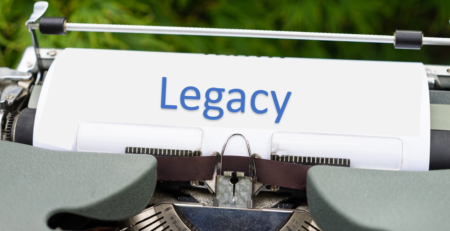What is mineral rights investing
What is mineral rights investing
Out of all investment strategies in real estate, whether it’s single family housing, multifamily, warehouses, etc., there is one particularly effective strategy of passive investing that many rarely discuss: investing in mineral rights. So, what is it and why should you care?
Well, if you are like me and you love the idea of making money off land, then mineral rights investing is yet another tool that you can take a closer look at! It may not be as sexy as developing luxury apartments, hotels, or multi-million-dollar apartment complexes, but from a financial standpoint, it could be very rewarding. Mineral investing has the potential to earn great returns and potentially even long-term, reliable passive income. The caveat as an investor is that it requires becoming familiar with an entirely different set of specialized knowledge. But as always, if there is a will, there is a way!
In this article we’ll discuss the basics to mineral rights investing and introduce how to start monetizing it.
What Are Mineral Rights?
Mineral rights are the legal ownership of the actual minerals beneath the ground you own. This could include oil, gas, precious metals, and more. In the United States, mineral rights are owned by the property owner unless specified otherwise in a legal contract. In other countries, these rights may be owned by the government, so check your local laws to find out the situation for your local area.
Basically this means that there could potentially be two owners of a specific area of land: one owner with surface rights and another owner with rights to the soil beneath it. And the takeaway is that even though you may own title to a piece of real estate, you may not actually own the mineral rights to it.
Even though many of us are not familiar with this fact, it is actually fairly common in the United States to see real estate with severed mineral rights; meaning the land at one point in the past was sold, but the owner retained the mineral rights for themselves. In short, this means that just like real property, mineral rights can be owned, leased, or even have easements.
How Can You Profit From It?
The process of actually digging up, extracting, refining, etc. could be extremely expensive! In addition, it would require various areas of specialized knowledge, which would require a team of experts. So, what should you do as an investor?
There are a number of ways a savvy investor can structure a deal. Firstly, an investor could sell or possibly lease the mineral rights along with the property. Lease agreements are most commonly used to extract oil and gas, but can also be used for other precious metals. It’s quite common for companies interested in minerals in the area to be willing to enter lease agreements just for the opportunity to investigate the potential of finding minerals. Secondly, deals could also include royalties or licenses for a specific mineral, time, or quantity. These royalties and licenses can vary greatly but typically range between 12.5% to 25% (or more) of the value extracted from your land. Now that is a good deal!
How to Get Started?
The first step in deciding to invest in mineral rights is finding out whether your property or the property you’re looking to purchase still has mineral rights. Your local county or municipality will not have record of these mineral rights, so don’t assume you have mineral rights just because you have the title. Finding out whether you own the mineral rights requires a special search with professional landmen.
Once you have confirmed you have ownership of the mineral rights, the next step is determining their value.
Again, you will need to seek out a mineral rights specialist or mineral rights broker to establish value. As taught in the Richest Man in Babylon, you wouldn’t hire a goat herder to advise you on the value of your diamonds, would you? Find a specialist! Only a specialist will be able to give you an accurate estimate of your mineral’s value. The specialist will take into consideration many aspects including the material itself, estimated quantity, market supply, demand, extraction costs, location, etc…, but the total value of the minerals could reach well beyond the value of the land itself, so do not skip hiring a specialist!
Monetizing Your Minerals!
Lastly, to seal the deal, you need to retain a professional familiar with drafting mineral rights agreements on your side. Someone knowledgeable in this field and skilled in negotiation will land you the best deal. A real estate agent or lawyer will typically help in this arena, and will be able to draft up a mineral rights lease or licensing agreement. But not all agents or lawyers will suffice, so make sure they are experienced handling agreements involving the specific mineral in which you interested. This professional will be more knowledgeable not only about handling and negotiating the agreements, but will also be familiar with specific investors and businesses interested in your particular mineral. They will know how to sell it best and to whom! So again, do not skip this step either!
Bottom line, just like with any new type of investment, you must educate yourself on the topic and hire experts to help you obtain the specific details in your search.
Have you thought about passively building your wealth via real estate investing?
Let’s talk











